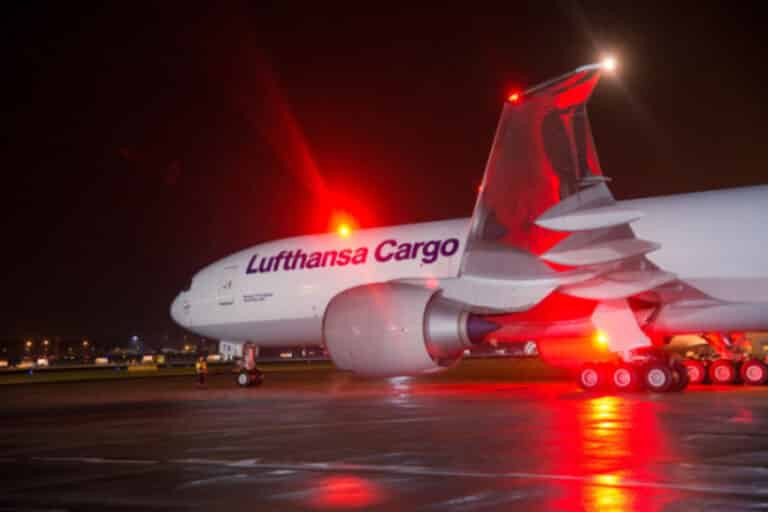Lufthansa Cargo is going to closely collaborate with promising technology start-ups as it looks to move forward with its digital innovation plans.
The carrier’s logistic division is the first freight airline globally to participate in the new ‘Logistics Tech Accelerator’ program in co-operation with US-American company RocketSpace.
The company has been helping tech start-ups and corporate innovation professionals bring the future to market since 2011. An agreement has now been signed.
Lufthansa Cargo vice president of product management and innovation, Monika Wiederhold says: “We are not only fully supporting innovation and digitisation in our own company, we want to drive our industry forward as a whole.
“We are already offering our customers worldwide innovative eServices. Nonetheless, we see great potential for increased digitisation and services in the entire air cargo supply chain. We are keen to explore new ways together with young, highly-qualified experts from the start-up scene.”
RocketSpace chief executive officer and founder, Duncan Logan adds: “Global corporations like Lufthansa Cargo working hand-in-hand with disruptive startups is a prime example of how an industry can come together to fuel open innovation.
“The Logistics Tech Accelerator will not only create cross-industry collaboration, but also create a center of innovation excellence to empower participants to accelerate with purpose and achieve measurable results.”
As a part of the program, Lufthansa Cargo is going to educate start-ups on the business objectives of the industry, will closely co-operate with selected companies and incubate ideas for a pilot program, resulting in a go-to-market solution.
In addition to start-ups, the Logistics Tech Accelerator will use the unique model of drawing from the diverse expertise of multiple corporate participants, alongside Lufthansa Cargo, including founding corporate member Kaleido.
RocketSpace has already been working with Lufthansa’s Berlin based Innovation Hub. “We are proud of extending the co-operation to the logistics sector now,” Wiederhold adds.




